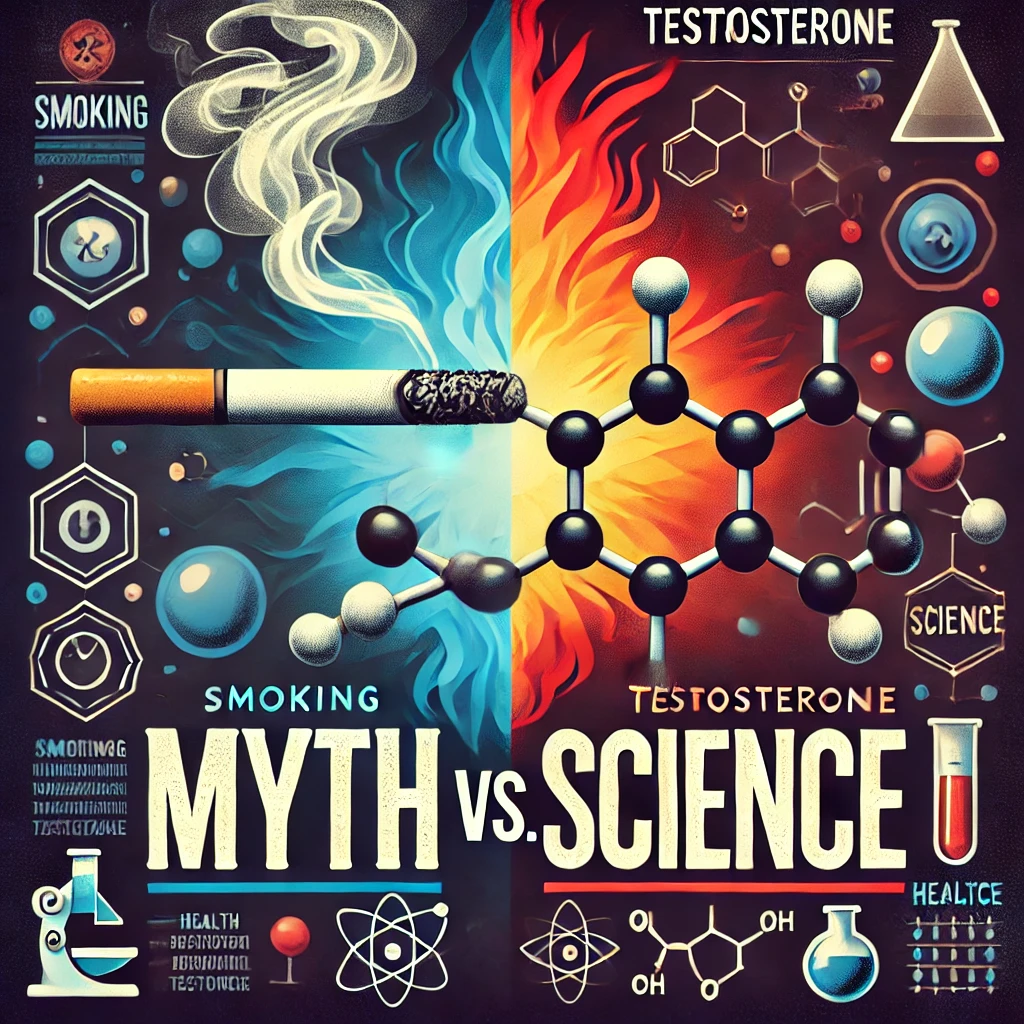GOTSMOKES.CO
- Canadian Cigarettes at Unrivaled Prices!
- Hassle-Free Shopping, and Prompt Delivery
- Comprehensive, Authentic and Competitive

Smoking is notorious for its harmful effects on health, from increasing the risk of lung cancer to heart disease. But what if smoking had a surprising impact on your testosterone levels? Some believe that lighting up could enhance their masculinity by boosting testosterone production. Is this fact or fiction? Let’s dive into the science behind nicotine, smoking, and how they influence testosterone, separating myths from reality.
Testosterone is often labeled as the “man hormone,” but it’s much more than a symbol of masculinity.
Testosterone plays a critical role in muscle mass, energy levels, mood, and even bone health. Although men produce far more testosterone than women, this hormone is essential for everyone’s well-being. For men especially, maintaining optimal levels is key to staying healthy and vigorous.
Smoking’s alleged effects on testosterone have sparked curiosity. While some suggest nicotine could increase testosterone, others argue that its long-term effects are damaging. To understand this connection, we need to explore the mechanisms behind testosterone production and how nicotine interacts with them.
Smoking impacts every system in the body, but how exactly does it meddle with testosterone?
Smoking delivers nicotine, a stimulant that interacts with the endocrine system. Studies, such as one published in the journal Hormones and Behavior, suggest that nicotine may transiently elevate testosterone levels. Researchers hypothesize this could be due to the body’s stress response, which triggers the adrenal glands to release hormones, including testosterone.
However, the story doesn’t end there. Chronic smoking introduces a host of toxic substances into the bloodstream, such as carbon monoxide and tar. These toxins can damage the Leydig cells in the testes, which are crucial for testosterone production. Over time, this damage can lower testosterone levels, counteracting any temporary boost nicotine might provide.
Even if smoking boosts testosterone temporarily, the long-term consequences are far less appealing.
Long-term smokers face numerous health risks, including reduced fertility and sexual dysfunction. According to a study published in PubMed, heavy smokers are more likely to experience decreased sperm count and motility. Testosterone plays a significant role in sperm production, and smoking’s toxic effects on testicular cells impair this process.
Additionally, smoking constricts blood vessels, leading to poor circulation. This can contribute to erectile dysfunction, a condition closely tied to testosterone levels and overall vascular health. So, while smoking might provide a fleeting spike in testosterone, the cumulative damage it inflicts on your reproductive system and cardiovascular health far outweighs any short-lived benefits.
Nicotine may seem like the main player, but its relationship with testosterone is anything but straightforward.
Nicotine, the primary addictive compound in tobacco, interacts with the brain’s dopamine system, providing a “reward” sensation that makes smoking so habit-forming. Research from ScienceDirect indicates that nicotine can influence cortisol levels, which indirectly affects testosterone.
While acute nicotine exposure might momentarily raise testosterone, chronic exposure often results in hormonal imbalances. Elevated cortisol levels—often triggered by smoking—can suppress testosterone production over time. This is part of the body’s stress response, prioritizing survival over reproductive functions.
Good news for smokers: giving up cigarettes can reverse some of the damage and even restore testosterone levels.
Quitting smoking is one of the best steps you can take to protect your hormonal health. Once you stop exposing your body to the toxic chemicals in cigarettes, your testosterone levels can begin to stabilize. Studies suggest that within weeks of quitting, men often experience improvements in sperm health, energy levels, and even sexual performance.
Moreover, adopting healthier habits like regular exercise, a balanced diet, and stress management can naturally boost testosterone production. The endocrine system is remarkably resilient, and the sooner you quit smoking, the better your chances of reversing its harmful effects.
Lighting Up Isn’t the Answer—Choose Health Instead
The link between smoking and testosterone is complex. While nicotine may cause a brief uptick in testosterone levels, the long-term effects of smoking are overwhelmingly negative. From reduced fertility to increased risks of chronic diseases, the harms far outweigh any potential benefits.
If you’re serious about maintaining healthy testosterone levels, the best move is to ditch cigarettes for good. Your body—and your hormones—will thank you.
Disclaimer: This article is for informational purposes only. Always adhere to local laws and regulations regarding tobacco purchase and use.